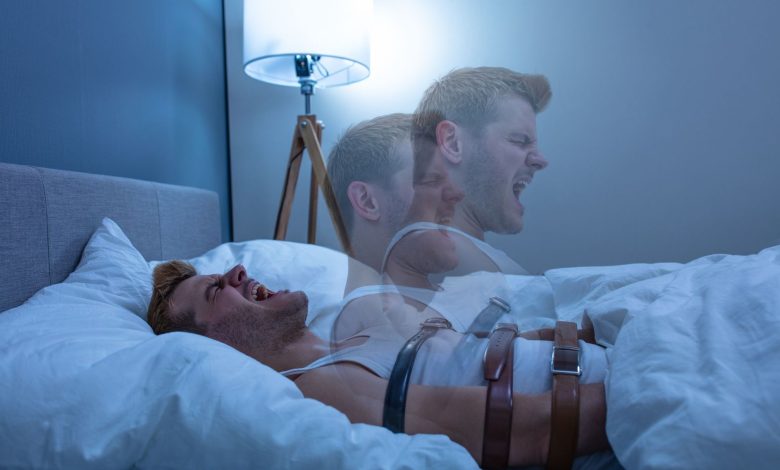Sleep paralysis: Symptoms to recognize

Sleep paralysis is a sleep disorder classified as a parasomnia under the International Classification of Sleep Disorders. Sleep paralysis can occur when people fall asleep—hypnagogic paralysis—or when they awaken: hypnopompic paralysis. In both cases, paralysis occurs during REM sleep. During this phase, the link between the brain and muscles is severed to prevent overactivity in the brain from causing physical harm. When awakened during this phase, the body may take a few extra moments to reconnect brain and muscle function: the person is conscious and unable to move voluntarily.
If this parasomnia is not serious if it occurs from time to time, it may be pathologic if its frequency increases: it may be a symptom of narcolepsy. Stress, fatigue, anxiety or a sudden and significant change in life are often the cause of sleep paralysis.
What are the symptoms of sleep paralysis?
Sleep paralysis is characterized by several symptoms that can be very frightening to people who suffer from it.
– The main symptom is the feeling of being paralyzed for several seconds or even minutes: the person affected is unable to move or speak, despite being conscious.
– Visual, auditory or tactile hallucinations: Paralysis may be accompanied by a sense of hostility near or in the room. These hallucinations may be very realistic and frightening, and may include visions of strange shapes, sinister characters, or unusual tactile sounds or sensations.
– A feeling that something is pressing on the chest: People with sleep paralysis may feel a strong sense of pressure or suffocation.
These symptoms may vary depending on the person affected. In fact, a person may not feel all of these sensations during an episode of sleep paralysis. These manifestations cause anxiety and insomnia. Eventually, the affected person fears falling asleep and becoming paralyzed from sleep.
Sleep paralysis and other conditions
With the anxiety and fear it generates, sleep paralysis can be confused with the following:
– nightmares or night terrors, especially in young children,
– nocturnal hallucination;
– atypical nocturnal epilepsy;
– an angina attack;
– a panic or tetany crisis;












